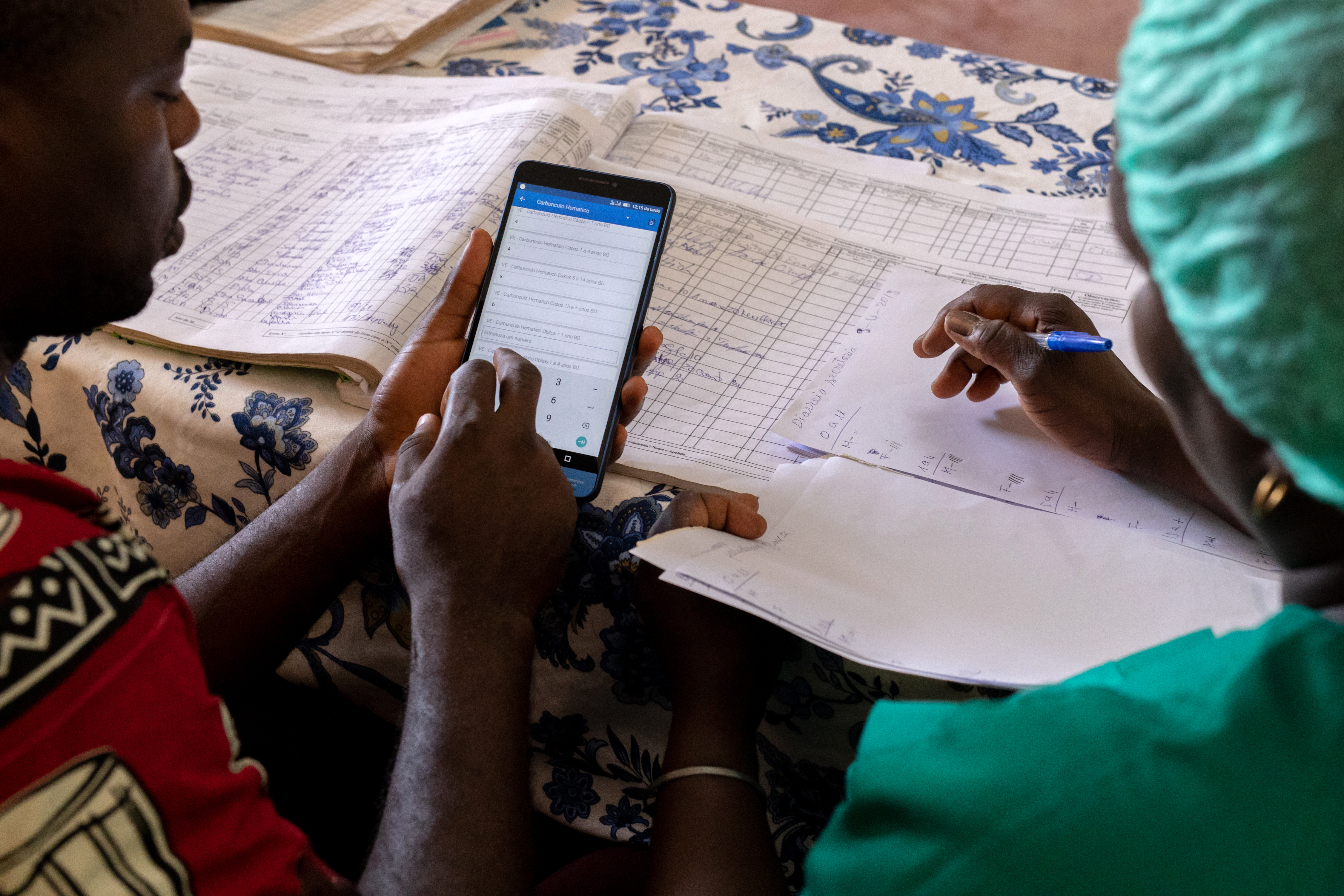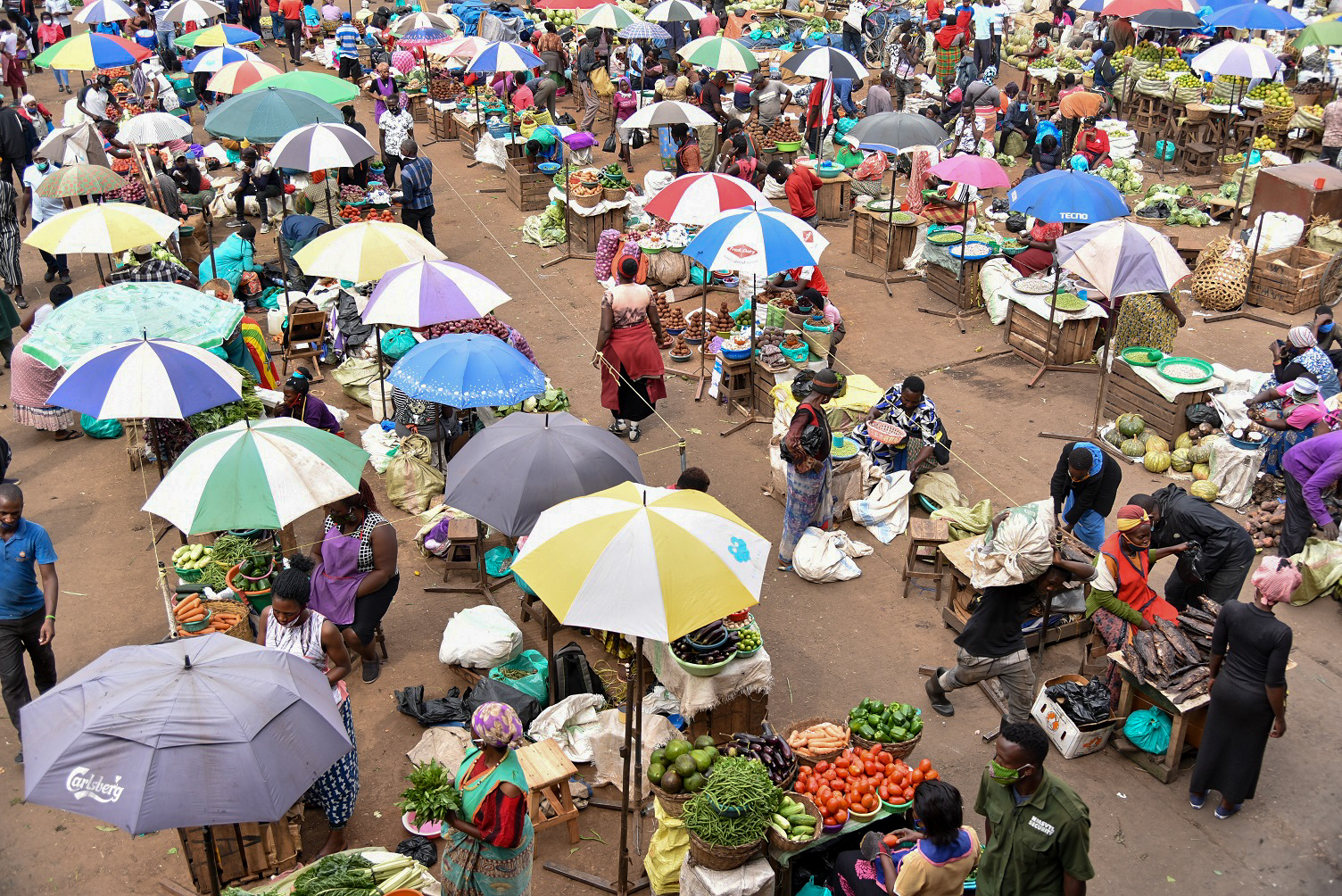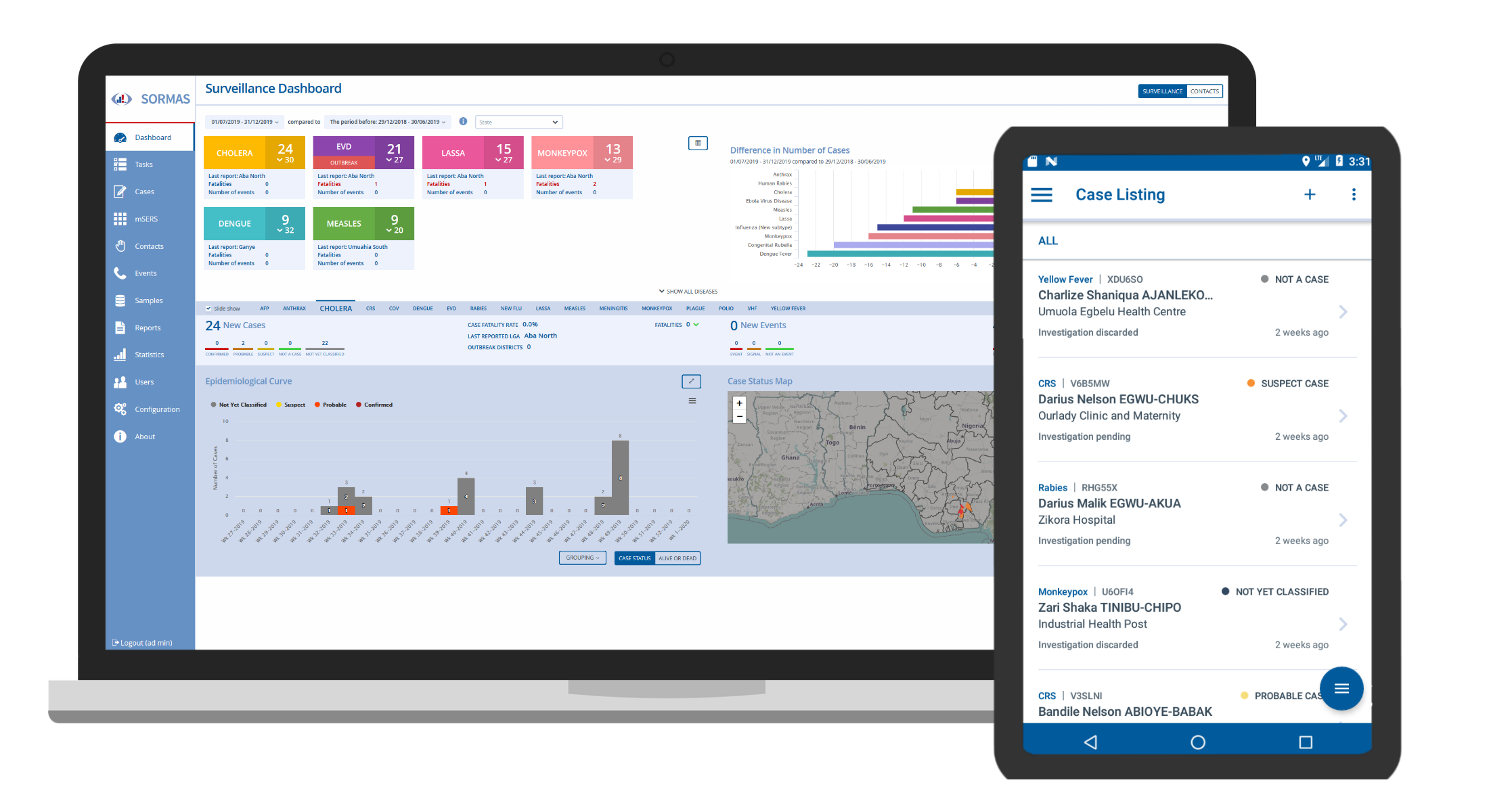Three ways digital transformation accelerates sustainable and inclusive development
March 22, 2023

Digital technology brings tremendous opportunities to accelerate progress on the Sustainable Development Goals, but it can also widen socioeconomic gaps for those who lack connectivity, affordable devices or the skills to benefit from digital services.
Digital transformation is the integration of digital technologies into all areas of business, changing how economic and social activities are conducted. While it’s important to acknowledge that digital technology can bring tremendous opportunities, like accelerating progress towards achieving the Sustainable Development Goals (SDGs), it can also widen socioeconomic gaps for those who lack Internet connectivity, affordable devices or the skills to benefit from digital services. Equally, vulnerable people and groups who don’t have training in digital skills can be more susceptible to online risks such as fraud, data disclosure, identify theft and cyberbullying.
“The future is digital, defining how we will live, work, and interact with each other. Whether technology becomes an empowering force for good or a sower of more division and exclusion will depend on the choices we make now.”
-Achim Steiner, UNDP Administrator, during his address at First Regular Session of the UNDP Executive Board 2023

To leverage the potential of digital for development, we need to make an intentional effort to steer technology development and digital transformation in a direction that is inclusive and sustainable.
To leverage the great potential of digital for development and to leave no one behind, we need to make an intentional effort to steer technology development and national digital transformation in a direction that’s both inclusive and sustainable. At UNDP, we believe that inclusive digital transformation can:
- Address the needs of the poorest as well as the most vulnerable and marginalized groups, including women and people with disabilities
- Ensure that digital transformation doesn't exacerbate existing inequalities, with a vision to leave no one behind
- Empower underrepresented groups to take part in meaningful ways and promotes gender equality
- Protect people from the adverse effects of digital technologies
- Encourage the use and development of digital technology that’s open, responsible and rights-based
UNDP has more than a decade of national-level experience in supporting developing countries with digital transformation. The COVID-19 pandemic accelerated the digitalization processes for many countries, resulting in a growing demand for UNDP’s support over the past three years.
With its whole-of-society inclusive right-based approach to digital transformation, UNDP responds to countries that seek assistance by advising on their digital strategies and governance frameworks, implementing digital public infrastructure, deploying digital solutions, fostering digital literacy and more.
Several insights have emerged as we look across our country-level digital interventions. Below are three ways that digital transformation is driving more sustainable and inclusive development - though enabling economic development, resilience building and climate adaptation.
"Digitalization serves as an important foundation for navigating not just development but also crises such as conflict situations in fragile contexts, natural disasters, or pandemics."
Benefiting business & economy
Digital transformation leads to more information, increased productivity, better data-driven decisions and a wider customer reach for businesses, especially for micro, small and medium enterprises (MSME), which have often been the main driver of post-COVID-19 economic recovery. Digital platforms and infrastructure can support efforts at poverty reduction by spurring economic activity and creating new jobs.
- UGANDA: UNDP collaborated with Jumia, an e-commerce firm, to improve income-earning opportunities by enabling informal market vendors to sell their goods online. More than 4,000 vendors have registered on the Jumia e-commerce platform, more than 60% of whom are women, young people, and people with disabilities. This new model has also created jobs for more than 900 young people, from market agents to customer care providers and delivery riders.
- CAMBODIA: A strategic partnership between the UNDP and the government led to several programs to create an enabling environment for MSME to be more digitally capable and resilient. As a result of those programs, more than 500,000 MSMEs and 2,500 young entrepreneurs harnessed digital solutions for their businesses in 2021.
- INDIA: UNDP’s Accelerator Lab tested an Internet-of-Things (IoT) solution for precision agriculture. By processing the weather, soil, and crops data from sensors, this IoT-based system provides actionable insights to farmers, helping them optimize water usage and navigate through irrigation challenges.

In Uganda, UNDP collaborated with e-commerce firm Jumia to enable informal market vendors to sell their goods online.
Increasing resilience against crises
Digitalization serves as an important foundation for navigating not just development but also crises. Many people struggled to receive proper healthcare during the COVID-19 pandemic, particularly those who lacked digital skills and access to the Internet or devices. The countries that had previously invested in digital infrastructure proved to have better resilience against crisis. In fragile contexts and in a situation of human-made crises, digital technologies and infrastructures can provide continuity in both government and private sector-provided services, helping communities to organize more effective aid and support programs, mitigate risks and improve preparedness.
- NIGERIA: The open-source mobile e-health platform SORMAS helped to almost triple the number of people covered by healthcare services between 2019 and 2020 when the pandemic hit.
- UKRAINE: Ukraineleveraged existing digital platforms and processes, making them more relevant for the provision of wartime digital public services like registering damaged property and assets, receiving the status of internally displaced persons, and requesting financial reimbursements for those affected by the war. The government and its partners, including UNDP Country Office in Ukraine, were already collaborating to make the design of their digital service platforms more inclusive and accessible, which later helped it reach a larger population when the crisis hit. UNDP also supported the design and launch of an open-source digital solution that aims to eliminate duplication of financial assistance from international organizations.
- AFGHANISTAN: UNDP implemented a digital cash transfer system as a part of the ABADEI programme that offers integrated solutions for the recovery and resilience of Afghan communities from crises. The system allows for greater financial inclusion and interoperability for financial services providers. As a result of the programme, UNDP with five intergovernmental organizations transferred US$600,000 to 2,745 people in nine provinces of the country.

In Nigeria, the open-source mobile e-health platform SORMAS helped to almost triple the number of people covered by healthcare services between 2019 and 2020, when the COVID-19 pandemic hit.
Building a greener planet
Digital technologies also introduce powerful tools and innovative solutions to help address environmental challenges. Additionally, they’re widely used to enhance climate resilience and protect those most at risk from natural disasters. Increasing computational power and more sophisticated modelling enable disaster simulations and recovery planning in case of climate emergencies. The growing volume of available data allows us to gain insights and an overview of our planet's natural resources and how we can build more resilient lives and livelihoods, especially for the most vulnerable populations.
- MALAWI: UNDP supported the deployment of more advanced early working systems which integrate solar-powered weather stations, lightning detection systems and flood sensors. This aggregated data enables more nuanced analysis, for better climate resilience.
- TURKEY: We experimented with creating a forest inventory, using satellite imagery by creating heatmaps that indicate forest stocks in a certain area.
- KENYA: UNDP and partners developed a web-based early warning system that monitors weather hazards, assesses risk and automatically issues warnings via SMS for a faster and more reliable response to seasonal flooding.
Digital technologies have already been shaping many areas and sectors of life, benefiting more people and giving the most vulnerable a chance to earn, learn, stay connected, communicate and receive critical services like education and healthcare in a better, more efficient way.
However, digital technologies aren’t inherently inclusive. We need to thoughtfully design, and apply, them that way. That is why UNDP supports countries seeking to accelerate digital transformation with a whole-of-society approach. Collective efforts are required to make sure that the digital revolution is intentionally inclusive and drives us to a more sustainable future where no one is left behind.
Interested in learning more about taking an inclusive approach to digital transformation? Check out UNDP’s Inclusive by Design Policy Brief.

 Locations
Locations





